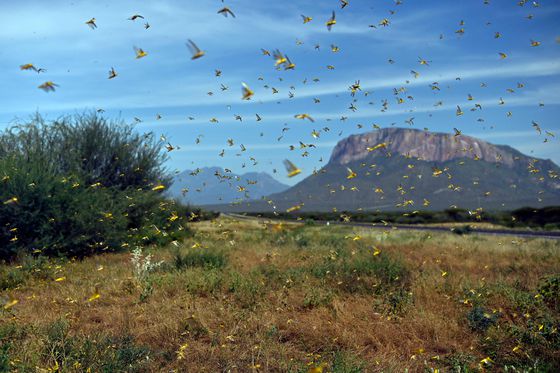The United Nations Food and Agriculture Organization has described the recent invasion of deserts locust in the East African region as “the worst experience in the past 25 years.”
The invasion has presented a major threat to food security and impacted negatively on farming and pastoral communities in the region.
The destructive desert locust has left farmers in the most hit regions of North Eastern Kenya painfully seeing their crops eaten away and not sure of what their families will feed on. Many cannot generate income to support themselves, including sending their children to school.
It should be noted that the areas that have been invaded by desert locusts have continuously been experiencing extreme weather patterns, specifically prolonged drought, resulting in food insecurity.
The World Metrological Organization, whose main objective is to provide leadership in expertise and international cooperation in weather, climate, hydrology, water resources and related environmental issues, has stated that climate change, which was characterized by unusual weather, climate conditions, and heavy rains experienced in the last quarter of 2019, has contributed to the outbreak of the desert locust.
The unusual weather in 2019 provided favourable breeding conditions to the locust, leading to their spread across Ethiopia, Somalia, Kenya, Djibouti, Eritrea, and Sudan, with Uganda next in line.
The invasion of the desert locust is a reminder to Uganda and the entire world that climate change is real, and that its destructive impact is a demonstration of what awaits us if no urgent actions are taken.
Source: The Observer






